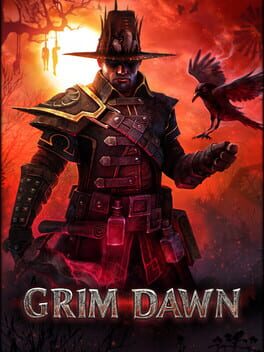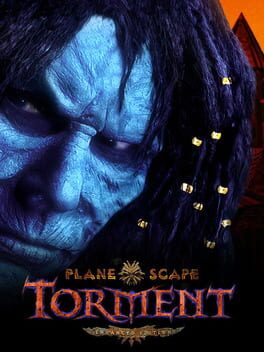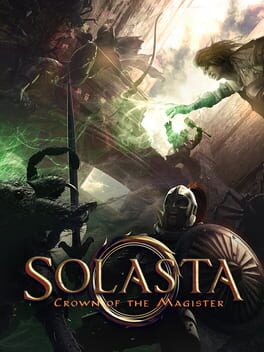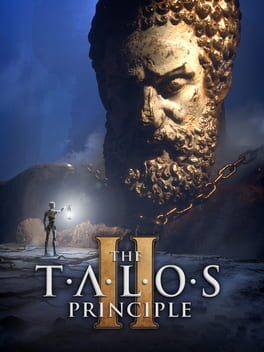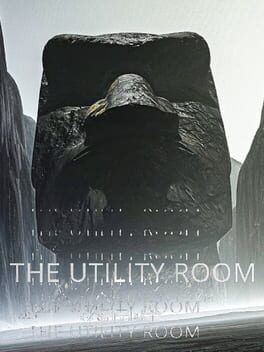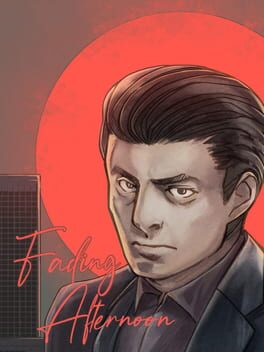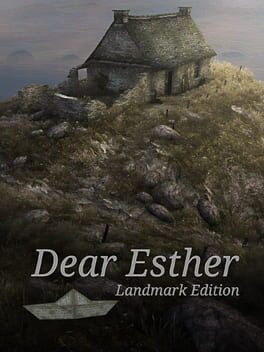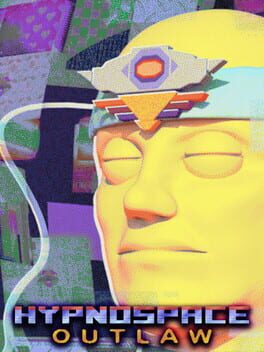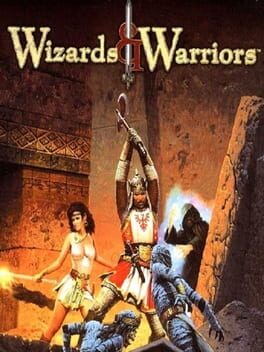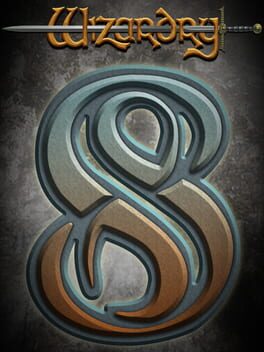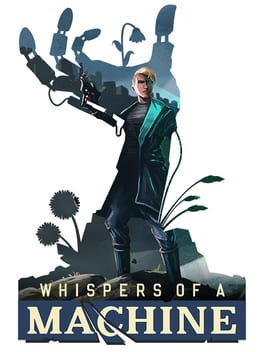AstrinSchmidt
2016
The graphics are quite nice and some of the lore text was pretty interesting to read... I guess there's a bit more action in the game, but it was still mostly mind-numbingly easy on 'Normal' difficulty, and I am not wont to play through it again. Pretty boring, and even playing it with a friend just made me worry about wasting my friend's time and energy... then I played some without them and completely ruined our co-operative playthrough, as the enemies all scaled above them and they simply could not contribute to our co-operative playthrough anymore.
It's okay, I guess.
It's okay, I guess.
Well, the story was good. I liked the overall plot, and the prose was enjoyable to read. I also found the setting of Planescape to be one of the most interesting and compelling video game settings I've seen, and the characters felt like characters, as opposed to tools for the player to progress the story through. This did, however, have its downsides -- there were a few times where progressing required following a random dialogue tree with a random named character. It wasn't particularly troublesome due to my tendency to fully embody the very inquisitive archetype of The Nameless One, asking everyone every available question, but it did feel a bit off.
The main issue with the game is the combat -- there are notable stretches of gameplay which pretty much devolve into dungeon crawls. The tactics I utilised seemed quite simple and boring, but also most effective -- drawing aggro with Morte and then wailing on the enemies one-by-one as they did not fight back. You would quickly figure this tactic out if you played the game. What this ultimately means is that a lot of the game is spent on rather tedious gameplay which does nothing to aid the story or worldbuilding -- the good parts of the game.
There is not much more to say here: the story was quite moving, the gameplay was bad, but tolerable. It's pretty short for an RPG, at around 23 hours, so I'd recommend it to any prospective player.
Most tactically interesting Planescape: Torment encounter (mild spoilers for a late-game boss fight): https://youtu.be/nAKLjyG7OHw
The main issue with the game is the combat -- there are notable stretches of gameplay which pretty much devolve into dungeon crawls. The tactics I utilised seemed quite simple and boring, but also most effective -- drawing aggro with Morte and then wailing on the enemies one-by-one as they did not fight back. You would quickly figure this tactic out if you played the game. What this ultimately means is that a lot of the game is spent on rather tedious gameplay which does nothing to aid the story or worldbuilding -- the good parts of the game.
There is not much more to say here: the story was quite moving, the gameplay was bad, but tolerable. It's pretty short for an RPG, at around 23 hours, so I'd recommend it to any prospective player.
Most tactically interesting Planescape: Torment encounter (mild spoilers for a late-game boss fight): https://youtu.be/nAKLjyG7OHw
It's just kind of boring. The game is pretty fun if I play it for an hour or two at a time, going on a standalone adventure from a town to a dungeon and back. However, if I do try to sit down with the intention of making progress and completing the game, it quickly becomes stale and puts me off the whole thing.
The emergent gameplay systems aren't as developed as that of Divinity: Original Sin 2, but I still had some fun engaging my lateral thinking to avoid just a bit of the combat funnel.
In terms of combat, I can comfortably say that I prefer Wizardry 8. D&D 5e's combat system is rewlly not the greatest in my opinion, and while the use of light can add a bit of tactical decisionmaking to battles against vampiric forces, it ultimately boils down to out-damaging the enemy a lot of the time; Status effects such as fear rarely proc due to the dice rolls involved, and wear off quickly, meqning that pure damage often ends up being a better investment of a turn.
One bonus, and what has given me the most fun in the game, is the custom campaign maker. It's easy to use and, while still painfully limited compared to what developers have created for their own campaigns, still allows you to flex your creative muscles and have some fun doing it.
The emergent gameplay systems aren't as developed as that of Divinity: Original Sin 2, but I still had some fun engaging my lateral thinking to avoid just a bit of the combat funnel.
In terms of combat, I can comfortably say that I prefer Wizardry 8. D&D 5e's combat system is rewlly not the greatest in my opinion, and while the use of light can add a bit of tactical decisionmaking to battles against vampiric forces, it ultimately boils down to out-damaging the enemy a lot of the time; Status effects such as fear rarely proc due to the dice rolls involved, and wear off quickly, meqning that pure damage often ends up being a better investment of a turn.
One bonus, and what has given me the most fun in the game, is the custom campaign maker. It's easy to use and, while still painfully limited compared to what developers have created for their own campaigns, still allows you to flex your creative muscles and have some fun doing it.
The most damning thing I can say about The Talos Principle II is that it bored me.
The open-world design led to a lot of running back and forth, with large parts of the game spent in dialogues with characters, as well as reading text from terminals. While the writing can be great, I found a lot of the dialogues to be tiresome and not very interesting, like these characters -- many of whom being hundreds of years old -- could hardly break away from retreading the same ground in meandering dialogues. Thus, the story was less consistently engaging than the succinct narrative in the first game.
The puzzles prove to be the true catalysts of the downfall of The Talos Principle II in my mind, however. Out of the 132 main puzzles, there was precisely one which genuinely had me stumped for a while (Thrust Vector, in case you are curious), and probably around two dozen which I felt were true 'puzzles' and not simple busywork. The lack of difficulty in the puzzles meant that on top of spending lots of time running around between puzzles, solving the puzzles themselves often felt like a waste of time, where nothing was learned and nothing much was gained.
Of note is my mention of 'main puzzles'. You see, outside of the usual puzzles, there are also story setpiece sections which feature the player manipulating puzzle elements, and there are monuments. The setpiece sections are generally of an even lower standard of difficulty than the main puzzles, and are busywork to the point of not actually having any numbers or names to identify them with. The monuments exist in three forms: pulling a lever in a location based on an image, map, or other similar clue; shooting a laser into a receptacle; and finding and chasing a 'sprite' around the map. The first of these hardly requires thinking most of the time, the second is a matter of shooting lasers across the map, requiring some tedious laser connector positioning across long distances, and the third can hardly be called a puzzle by any stretch of the imagination. These stars were so tedious and pointless that I did not bother getting them.
With all of that out of the way, my experience was far from negative on the whole. There are definitely many points where the familiar brilliance of the writing shines through -- I was particularly fond of the interactive text adventures in the game. There are some stand-out music tracks I quite liked. The elephant in the room is, however, the graphical presentation. The level of detail is simply absurd, the performance is great (other than the random crashes, of which I experienced 17 in 25 hours), and many of the visual designs of the elements of the environments are simply stunning; I was frequently reminded of the likes of BLAME! and NaissanceE, brought to life in real-time 3D at an unprecedented level of fidelity.
Overall, I found The Talos Principle II to be severely lacking as a puzzle game, and not as compelling on the merits of its narrative as the first game, but still good and definitely worth its low asking price.
That said, shout out to Croteam for putting multiple direct parallels between Shakespeare's The Tempest and the story and setting of this game into the text, in a way which could go over the average player's head and still make for a full experience. I would recommend reading/watching The Tempest on its own merit, but I have been mulling the parallels over in my head for the past day and it's been good fun.
The open-world design led to a lot of running back and forth, with large parts of the game spent in dialogues with characters, as well as reading text from terminals. While the writing can be great, I found a lot of the dialogues to be tiresome and not very interesting, like these characters -- many of whom being hundreds of years old -- could hardly break away from retreading the same ground in meandering dialogues. Thus, the story was less consistently engaging than the succinct narrative in the first game.
The puzzles prove to be the true catalysts of the downfall of The Talos Principle II in my mind, however. Out of the 132 main puzzles, there was precisely one which genuinely had me stumped for a while (Thrust Vector, in case you are curious), and probably around two dozen which I felt were true 'puzzles' and not simple busywork. The lack of difficulty in the puzzles meant that on top of spending lots of time running around between puzzles, solving the puzzles themselves often felt like a waste of time, where nothing was learned and nothing much was gained.
Of note is my mention of 'main puzzles'. You see, outside of the usual puzzles, there are also story setpiece sections which feature the player manipulating puzzle elements, and there are monuments. The setpiece sections are generally of an even lower standard of difficulty than the main puzzles, and are busywork to the point of not actually having any numbers or names to identify them with. The monuments exist in three forms: pulling a lever in a location based on an image, map, or other similar clue; shooting a laser into a receptacle; and finding and chasing a 'sprite' around the map. The first of these hardly requires thinking most of the time, the second is a matter of shooting lasers across the map, requiring some tedious laser connector positioning across long distances, and the third can hardly be called a puzzle by any stretch of the imagination. These stars were so tedious and pointless that I did not bother getting them.
With all of that out of the way, my experience was far from negative on the whole. There are definitely many points where the familiar brilliance of the writing shines through -- I was particularly fond of the interactive text adventures in the game. There are some stand-out music tracks I quite liked. The elephant in the room is, however, the graphical presentation. The level of detail is simply absurd, the performance is great (other than the random crashes, of which I experienced 17 in 25 hours), and many of the visual designs of the elements of the environments are simply stunning; I was frequently reminded of the likes of BLAME! and NaissanceE, brought to life in real-time 3D at an unprecedented level of fidelity.
Overall, I found The Talos Principle II to be severely lacking as a puzzle game, and not as compelling on the merits of its narrative as the first game, but still good and definitely worth its low asking price.
That said, shout out to Croteam for putting multiple direct parallels between Shakespeare's The Tempest and the story and setting of this game into the text, in a way which could go over the average player's head and still make for a full experience. I would recommend reading/watching The Tempest on its own merit, but I have been mulling the parallels over in my head for the past day and it's been good fun.
2023
Firstly, for the positives: Some of the music is quite nice and the game manages to build a nice atmosphere as you traverse the environment...
That's about it. The negatives are much more numerous: the game is short and not very substantial, and what little story you do unlock by finding the collectables just make it all sound like a joke. A lot of the game is spent walking through caves (or platforming, as was the case in the 'extended' campaign I played... it was annoying), and these caves are generally pretty ugly and not very interesting to look at. I can't say I felt any tension or fear while playing the game, which some other people have claimed... I was also not impressed with the ending.
Overall, it's an enjoyable experience on a surface level — walking while listening to music and watching surreal imagery — but it's ultimately fleeting and doesn't leave me with much to think about.
That's about it. The negatives are much more numerous: the game is short and not very substantial, and what little story you do unlock by finding the collectables just make it all sound like a joke. A lot of the game is spent walking through caves (or platforming, as was the case in the 'extended' campaign I played... it was annoying), and these caves are generally pretty ugly and not very interesting to look at. I can't say I felt any tension or fear while playing the game, which some other people have claimed... I was also not impressed with the ending.
Overall, it's an enjoyable experience on a surface level — walking while listening to music and watching surreal imagery — but it's ultimately fleeting and doesn't leave me with much to think about.
2023
I ended up doing three runs in one sitting, reaching the end of the time limit twice. The combat loop gets really repetitive, really quickly, and the characters don't really seem to have strong arcs like they did in The Friends of Ringo Ishikawa — things just sort of happen in response to the player's actions, where the world and characters feel kind of static and as though they lack agency compared to the world-shaping power of the player. In simpler terms, it feels like a combat/monopoly simulator with consequences, and less like a coherent story with characters — case in point, on one of my runs, I did not focus on attacking specific factions and basically no story ended up occuring, despite Seiji spending every day fighting and capturing districts.
Overall, this has Yeo's usual stylistics, good pixel art, and expanded and improved combat system, etc... but it doesn't really leave an impact on me like their first work.
Overall, this has Yeo's usual stylistics, good pixel art, and expanded and improved combat system, etc... but it doesn't really leave an impact on me like their first work.
2019
It is interesting to start, and while it can feel somewhat slow and boring when you get stuck, and the aesthetics of the websites do get old fairly quickly, the game does progress at a decent pace, bringing in frequent changes to shake up the landscape, and does not overstay its welcome. It took me 4.6 hours to reach the credits, and most of that time was undoubtedly spent reading random webpages in the game.
The gameplay starts off simple, but does eventually get fairly involved, requiring the player to think to combine information from multiple sources to find the answers the game tasks them with finding. The world-building (character writing) is surprisingly effective, condidering the game's limited scope.
Overall, if you can get it for cheap, it is hard not to recommend this short and sweet experience.
The gameplay starts off simple, but does eventually get fairly involved, requiring the player to think to combine information from multiple sources to find the answers the game tasks them with finding. The world-building (character writing) is surprisingly effective, condidering the game's limited scope.
Overall, if you can get it for cheap, it is hard not to recommend this short and sweet experience.
2022
This game is difficult to assess — on one hand, it offers a considerable amount of choice, and goes to great lengths to make it feel like your decisions have impact. It also gives you freedom to think through the investigation yourself, even if it does mean that you end up solving the big mystery in Act 1, and have to wait until the end for the characters in the game to figure it out, as I did... The game also explores potent and complex themes, with believable characters — however, going into detail here would not be feasible, and would spoil the main draw of the game for prospective players, so I shall restrain myself.
At the same time, the gameplay itself can be a drag — it is pretty much just reading, and the prose is not particularly interesting, largely due to the fact that most all text is dialogue. The pacing also suffers in the third act, as you are not really investigating anything anymore, and it becomes more of a checklist for you to fill out whilst the game shows off how much impact the decisions in the first two acts had... the third act is the longest in the game.
I have already mentioned my main gripe with the plot, but I feel that it bears repeating: I quickly figured out that there was a major suspect whom the game would not let me accuse, and as the game kept going, the evidence just kept piling up and the characters would not acknowledge it until the big reveal at the end. It was kind of infuriating.
Overall, I like this video game — the graphics are good, the freedom of choice and the genuine detective work serve it well, and it does discuss many interesting things outside of the main murder mystery. It also has no combat, which saves it from being absolutely awful to play; A fate which befell Tyranny, the other Obsidian RPG I have played.
At the same time, the gameplay itself can be a drag — it is pretty much just reading, and the prose is not particularly interesting, largely due to the fact that most all text is dialogue. The pacing also suffers in the third act, as you are not really investigating anything anymore, and it becomes more of a checklist for you to fill out whilst the game shows off how much impact the decisions in the first two acts had... the third act is the longest in the game.
I have already mentioned my main gripe with the plot, but I feel that it bears repeating: I quickly figured out that there was a major suspect whom the game would not let me accuse, and as the game kept going, the evidence just kept piling up and the characters would not acknowledge it until the big reveal at the end. It was kind of infuriating.
Overall, I like this video game — the graphics are good, the freedom of choice and the genuine detective work serve it well, and it does discuss many interesting things outside of the main murder mystery. It also has no combat, which saves it from being absolutely awful to play; A fate which befell Tyranny, the other Obsidian RPG I have played.
2000
The first thing to point out is that, unlike many other old-school dungeon crawlers (most notably the Wizardry series), this game is very easy — mindlessly so, even on the highest difficulty settings. Other than a select few enemies, who are capable of nearly wiping out the party with hitscan AoE spells, every combat encounter is a trivial matter of using some basic spells and attacks (mainly buffing your fighting classes and using AoE spells of your own) and bringing the enemies' healthbars down. You always have the option of simply turning tail and easily outrunning the enemies, as well as the option to run past everything in the first place.
With that out of the way, the main flaw of the game can be directly addressed — it is repetitive and boring. The gameplay pretty much provides no challenge, so you are left with large and elaborate dungeons to crawl through, picking up lots of identical and uninteresting loot to sell off at a shop, looking for whatever key item you need to finish the dungeon. Frankly, this got old after 20 hours, and the game took 40 to beat.
The towns are also simply tedious and slow — characters talk slowly, and there is no way to skip through their dialogue. You have to accept and hand in guild quests with each character, which means that you have to sit through the same dialogue multiple times. Selling off junk at a store is also simply not a fun gameplay loop.
The game certainly has its strong points — the skill progression can be rewarding, with there being a big money crunch to upgrade your skills at guilds, justifying the time you spend picking up and selling loot. The game has that Wizardry-esque class progression, and classes and races feel distinct and unique (one need only look at the elephant people, the Oomphaz). The game never fails to make you feel powerful, to a fault... maybe I was just too good at building my party or something.
Overall, this game can be fun, but I would not advise spending the time to play to the end if/when crawling through the dungeons gets boring — the game does not really offer anything except the party building and dungeon-crawling loop.
With that out of the way, the main flaw of the game can be directly addressed — it is repetitive and boring. The gameplay pretty much provides no challenge, so you are left with large and elaborate dungeons to crawl through, picking up lots of identical and uninteresting loot to sell off at a shop, looking for whatever key item you need to finish the dungeon. Frankly, this got old after 20 hours, and the game took 40 to beat.
The towns are also simply tedious and slow — characters talk slowly, and there is no way to skip through their dialogue. You have to accept and hand in guild quests with each character, which means that you have to sit through the same dialogue multiple times. Selling off junk at a store is also simply not a fun gameplay loop.
The game certainly has its strong points — the skill progression can be rewarding, with there being a big money crunch to upgrade your skills at guilds, justifying the time you spend picking up and selling loot. The game has that Wizardry-esque class progression, and classes and races feel distinct and unique (one need only look at the elephant people, the Oomphaz). The game never fails to make you feel powerful, to a fault... maybe I was just too good at building my party or something.
Overall, this game can be fun, but I would not advise spending the time to play to the end if/when crawling through the dungeons gets boring — the game does not really offer anything except the party building and dungeon-crawling loop.
2001
I admit, the first time I tried this game back in 2020, I bounced off completely -- I did not grasp basic tactical positioning, not party composition (my first party was built almost entirely out of hybrids).
Well, I can testify that with proper consideration of your formation, and the kinds of characters who should occupy certain spaces in it, the combat in this game can be a real blast. The steady trickle of new spells and ever-increasing character abilities means that one must change up their tactics fairly often to thrive, and the enemies certainly do not lag behind on the power creep.
I begin by talking about the combat because that is what you will spend the overwhelming majority of the game doing. Yet, it is not the only great part of the game -- it features an open-world, non-linear structure, great worldbuilding which makes Dominus feel like a real place without being overbearing, a main quest with multiple branching paths up to the player's discretion, no arbitrary 'critical NPCs', and generally about as much freedom of approach as one could ask from a classic-style CRPG from the early 2000s. The game also features lots of fully-voiced character dialogue, including a whopping 36 different voices to give your player characters, and over half a dozen mercenaries to hire, all with their own personalities. These character voices continuously surprised me as they made comments on story events, without a very particular reason to (for example, my bard randomly decided to mention that Bela, a returning character from Wizardry 6 was 'her type'). I found that the game had a great deal of character, and was pretty much fully-realised in terms of immersing the player in its world.
I found that the environments were varied, as was the plethora of enemies found within them. The soundscape was something of a weak point, particularly the somewhat unremarkable and very repetitive music, but it doesn't really matter in the grand scheme of things, as the other qualities of the game bear the burden of setting the mood on their titanic shoulders.
Overall, I might just recommend this game to everyone, just to see if they might like it. Now, I have not played any other blobbers, and I as told that this was a bad starting point, but I ended up beating it on Normal difficulty without much issue, taking 72 hours. Hence, if you feel like you'd be at all interested in trying this game based on anything you've seen about it, I would recommend you give it a go -- considering how cheap it goes on sale, and the amount of playtime you'll be getting, the value proposition almost becomes an irrelevant factor.
Well, I can testify that with proper consideration of your formation, and the kinds of characters who should occupy certain spaces in it, the combat in this game can be a real blast. The steady trickle of new spells and ever-increasing character abilities means that one must change up their tactics fairly often to thrive, and the enemies certainly do not lag behind on the power creep.
I begin by talking about the combat because that is what you will spend the overwhelming majority of the game doing. Yet, it is not the only great part of the game -- it features an open-world, non-linear structure, great worldbuilding which makes Dominus feel like a real place without being overbearing, a main quest with multiple branching paths up to the player's discretion, no arbitrary 'critical NPCs', and generally about as much freedom of approach as one could ask from a classic-style CRPG from the early 2000s. The game also features lots of fully-voiced character dialogue, including a whopping 36 different voices to give your player characters, and over half a dozen mercenaries to hire, all with their own personalities. These character voices continuously surprised me as they made comments on story events, without a very particular reason to (for example, my bard randomly decided to mention that Bela, a returning character from Wizardry 6 was 'her type'). I found that the game had a great deal of character, and was pretty much fully-realised in terms of immersing the player in its world.
I found that the environments were varied, as was the plethora of enemies found within them. The soundscape was something of a weak point, particularly the somewhat unremarkable and very repetitive music, but it doesn't really matter in the grand scheme of things, as the other qualities of the game bear the burden of setting the mood on their titanic shoulders.
Overall, I might just recommend this game to everyone, just to see if they might like it. Now, I have not played any other blobbers, and I as told that this was a bad starting point, but I ended up beating it on Normal difficulty without much issue, taking 72 hours. Hence, if you feel like you'd be at all interested in trying this game based on anything you've seen about it, I would recommend you give it a go -- considering how cheap it goes on sale, and the amount of playtime you'll be getting, the value proposition almost becomes an irrelevant factor.
I am not experienced with point-and-click adventure games, and thus found this game to be more cerebral than most other story-focused games I have played. I was often left wandering around town, clicking every dialogue option until the game gave me a hint of what I was actually supposed to be doing. I also felt that the puzzles, whilst more challenging and engaging than I would expect from something that was not a straight-up puzzle game, were at times rather obtuse and frustrating.
The main focus of the game is, of course, the story. I think it's okay. It's short, and doesn't really have a beginning or ending — it's more like a slice-of-life thing, where the characters' past is mostly left to the imagination, and the future — to speculation. The game has blatant commentary on the nature of artificial intelligence, as well as presenting a rather... unapproachable moral dilemma about the dangers of semiconductor-based technology. As someone who used an extremely complex semiconductor-based system to play the game, and is using one to write this review, I honestly could not take the arguments against technology presented in the game seriously.
The music was decent, providing a good atmosphere without particularly sticking out to me. The actual prose was fine, though lacking in the poetic flare of the likes of Disco Elysium, Planescape: Torment, or even Norco.
The game has narrative paths which define your "play style". Since this is a point-and-click adventure game, they don't really end up changing your approach to solving problems as much as they would in a game with more player agency and free-form gameplay, but it is nice to feel like there is something unique to your play style. Of course, the alignment system leaves questions, as it is usually very obvious when a dialogue is prompting you to pick a direction to nudge your alignment in (most dialogues seem to have three options, corresponding to three alignments)
Overall, I would say that the game was just fine, if not overly memorable. It did not come off as particularly ambitious in any regard. The pixel-art style seems to have been well-realised, at least.
The main focus of the game is, of course, the story. I think it's okay. It's short, and doesn't really have a beginning or ending — it's more like a slice-of-life thing, where the characters' past is mostly left to the imagination, and the future — to speculation. The game has blatant commentary on the nature of artificial intelligence, as well as presenting a rather... unapproachable moral dilemma about the dangers of semiconductor-based technology. As someone who used an extremely complex semiconductor-based system to play the game, and is using one to write this review, I honestly could not take the arguments against technology presented in the game seriously.
The music was decent, providing a good atmosphere without particularly sticking out to me. The actual prose was fine, though lacking in the poetic flare of the likes of Disco Elysium, Planescape: Torment, or even Norco.
The game has narrative paths which define your "play style". Since this is a point-and-click adventure game, they don't really end up changing your approach to solving problems as much as they would in a game with more player agency and free-form gameplay, but it is nice to feel like there is something unique to your play style. Of course, the alignment system leaves questions, as it is usually very obvious when a dialogue is prompting you to pick a direction to nudge your alignment in (most dialogues seem to have three options, corresponding to three alignments)
Overall, I would say that the game was just fine, if not overly memorable. It did not come off as particularly ambitious in any regard. The pixel-art style seems to have been well-realised, at least.
The gameplay feels like a real precursor to MGS V (or the home console sibling of Peace Walker, if you prefer). Unfortunately, the stealth action kind of ends before you can get used to it. Most of the gameplay in the game feels as though it was designed to either provide unique setpieces (mainly boss fights), or transport the player between cutscenes.
Speaking of the cutscenes, they are very long and very boring. There are multiple 50-minute non-gameplay sections throughout, and the infamous ending is over 70 minutes long. The game absolutely does not justify the absurd amount of cinematics present, and it really makes you feel like you spend most of the game watching a boring movie instead of playing the game.
The story kind of sucks, and undoes a lot of what I liked about MGS 2. It is very overt about its intentions of delivering 'moar metal gears!!' to players due to popular demand, but this kind of lampshading and metanarrative does not make the actual plot any more tolerable. The constant 'male gaze'-esque sexualised portrayal of most female characters really got on my nerves, too. I did not enjoy sitting through these cutscenes, and ended up doing chess puzzles on my phone with them running in the background a lot of the time.
Overall, the game can definitely bw enjoyable, with some string gameplay and story moments (I quite liked the soundtrack, too), but calling it a 'mixed bag' does not even begin to describe it. The gameplay arguably peaks about 2/5ths through the game, and never recovers, as act 3 onwards is just not the same game anymore. Especially considering the pain of emulating this through RPCS3, I would honestly say that this game is only really worth playing for die-hard MGS fans. I'm still giving it 3.5 stars because I liked some parts of it quite a bit, but the overwhelming majority of players would, in my opinion, be much better off simply playing MGS V or Peace Walker for the gameplay, and the first three mainline titles for the story.
Thinking about it, I think I liked the story of Peace Walker more than that of this game, too...
Speaking of the cutscenes, they are very long and very boring. There are multiple 50-minute non-gameplay sections throughout, and the infamous ending is over 70 minutes long. The game absolutely does not justify the absurd amount of cinematics present, and it really makes you feel like you spend most of the game watching a boring movie instead of playing the game.
The story kind of sucks, and undoes a lot of what I liked about MGS 2. It is very overt about its intentions of delivering 'moar metal gears!!' to players due to popular demand, but this kind of lampshading and metanarrative does not make the actual plot any more tolerable. The constant 'male gaze'-esque sexualised portrayal of most female characters really got on my nerves, too. I did not enjoy sitting through these cutscenes, and ended up doing chess puzzles on my phone with them running in the background a lot of the time.
Overall, the game can definitely bw enjoyable, with some string gameplay and story moments (I quite liked the soundtrack, too), but calling it a 'mixed bag' does not even begin to describe it. The gameplay arguably peaks about 2/5ths through the game, and never recovers, as act 3 onwards is just not the same game anymore. Especially considering the pain of emulating this through RPCS3, I would honestly say that this game is only really worth playing for die-hard MGS fans. I'm still giving it 3.5 stars because I liked some parts of it quite a bit, but the overwhelming majority of players would, in my opinion, be much better off simply playing MGS V or Peace Walker for the gameplay, and the first three mainline titles for the story.
Thinking about it, I think I liked the story of Peace Walker more than that of this game, too...
2005
Alongside God of War III, this is one of the only games I know where the only flaw keeping it from a five-star rating is that the story is quite sparse and uninteresting — usually, the story can make up for lacklustre gameplay, but in this case, everything except for the story is pretty much perfect. I am not a big fan of the campy Hollywood action-film style of the story, and it does not really try for anything more complex than 'good guy fights bad guys'... (except for Ada, perhaps?). I do not think myself qualified to analyse gameplay on any interesting level, suffice to say I had fun and was only bored when I got lost (before someone told me I had a map... that one is on me).
2019
I don't think I 'get' this game. The main gameplay loop consists of running to and fro, with zombies serving as speed bumps to whittle down your resources. On normal difficulty, I was always flush with resources, and had a ton of stuff stockpiled for a final gauntlet which never came.
The game picks up around the 2/3 point, where the story progresses and you are introduced to multiple new locales, bosses, and enemy types. This makes a good 4-hour portion in the middle of the game feel like filler — the new enemy types provide a lot more challenge than the weakling zombies populating the police station.
As a last point, to address the elephant in the room: The game did not scare me in the slightest. Playing it in both VR and flatscreen, I never felt any unease, neither in the contextual sense of the game world, nor in the gameplay sense, since I was flush with resources. I admit, I am not the easiest person to frighten, but I really feel like Silent Hill from 1999 is still far, far above this game in terms of fear factor (Silent Hill scared me back when I was 15... maybe I've grown out of it by now).
Overall, this is a rather easy action/adventure game with rather simplistic combat, with massive difficulty spikes on the bosses and specific encounters (not that the difficulty spikes that high, but the baseline difficulty of dealing with the basic zombies is simply nonexistent). Alan Wake II had made me itch for a survival horror game with good gameplay, but I honestly feel like at the end of the day, AWII had better gameplay than this. I might just move on to RE4 or 5 next.
The game picks up around the 2/3 point, where the story progresses and you are introduced to multiple new locales, bosses, and enemy types. This makes a good 4-hour portion in the middle of the game feel like filler — the new enemy types provide a lot more challenge than the weakling zombies populating the police station.
As a last point, to address the elephant in the room: The game did not scare me in the slightest. Playing it in both VR and flatscreen, I never felt any unease, neither in the contextual sense of the game world, nor in the gameplay sense, since I was flush with resources. I admit, I am not the easiest person to frighten, but I really feel like Silent Hill from 1999 is still far, far above this game in terms of fear factor (Silent Hill scared me back when I was 15... maybe I've grown out of it by now).
Overall, this is a rather easy action/adventure game with rather simplistic combat, with massive difficulty spikes on the bosses and specific encounters (not that the difficulty spikes that high, but the baseline difficulty of dealing with the basic zombies is simply nonexistent). Alan Wake II had made me itch for a survival horror game with good gameplay, but I honestly feel like at the end of the day, AWII had better gameplay than this. I might just move on to RE4 or 5 next.
